Ever found yourself asking, “Is cypress a hardwood or a softwood?” Let’s delve into the world of cypress and demystify this conundrum together!
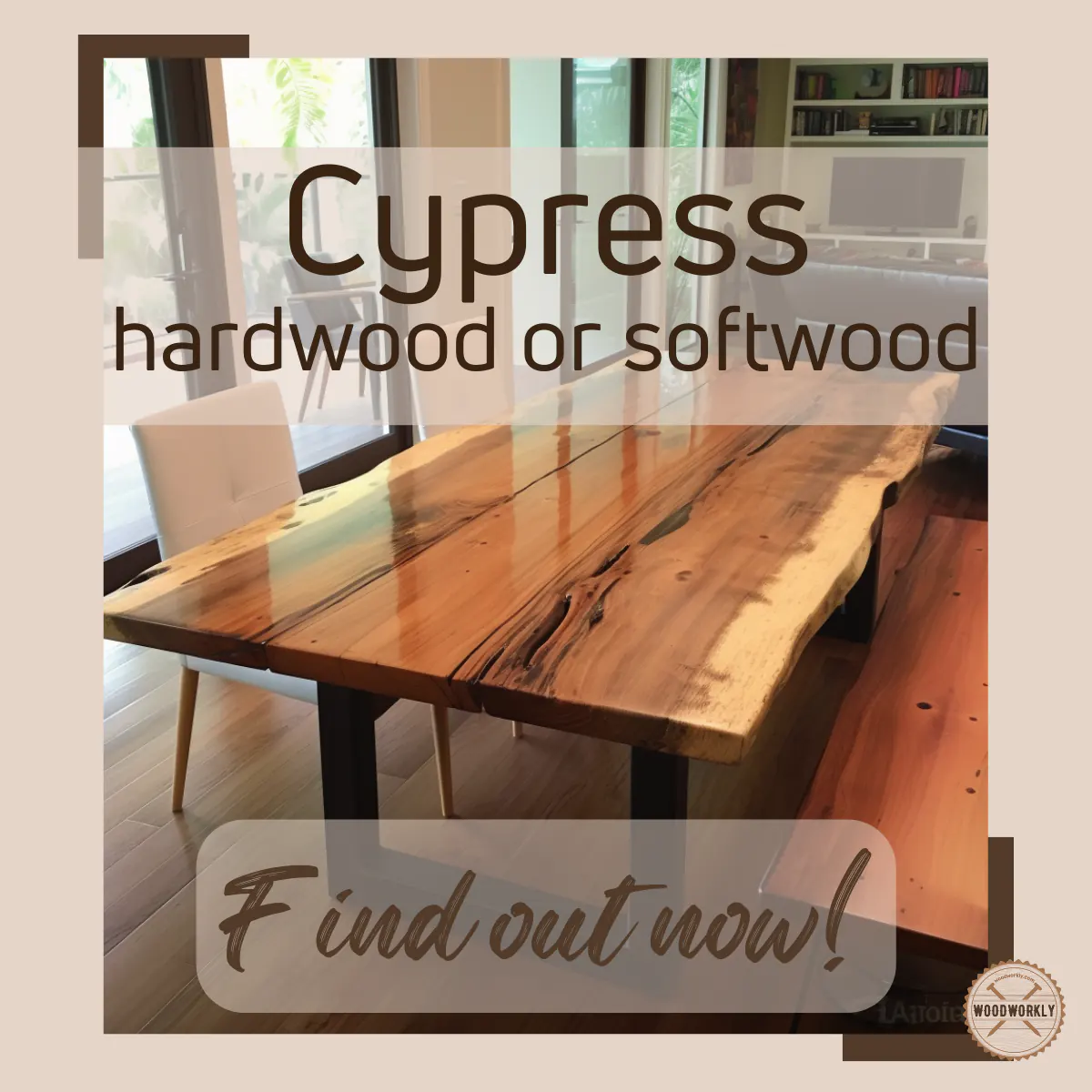
Cypress is a popular choice in making boats, siding, posts, and many other interiors and exterior woodworking projects.
It is commonly distributed in the Southeastern United States.
When I was working with Cypress for exterior applications, I was surprised by its great qualities and wondered, Is Cypress a hardwood?
Cypress is technically classified as a softwood due to its coniferous origins. However, it shares many characteristics with hardwoods, such as durability and resistance to decay, which make it suitable for various applications traditionally associated with hardwoods.
But there’s more to know about the hardness of Cypress than just that.
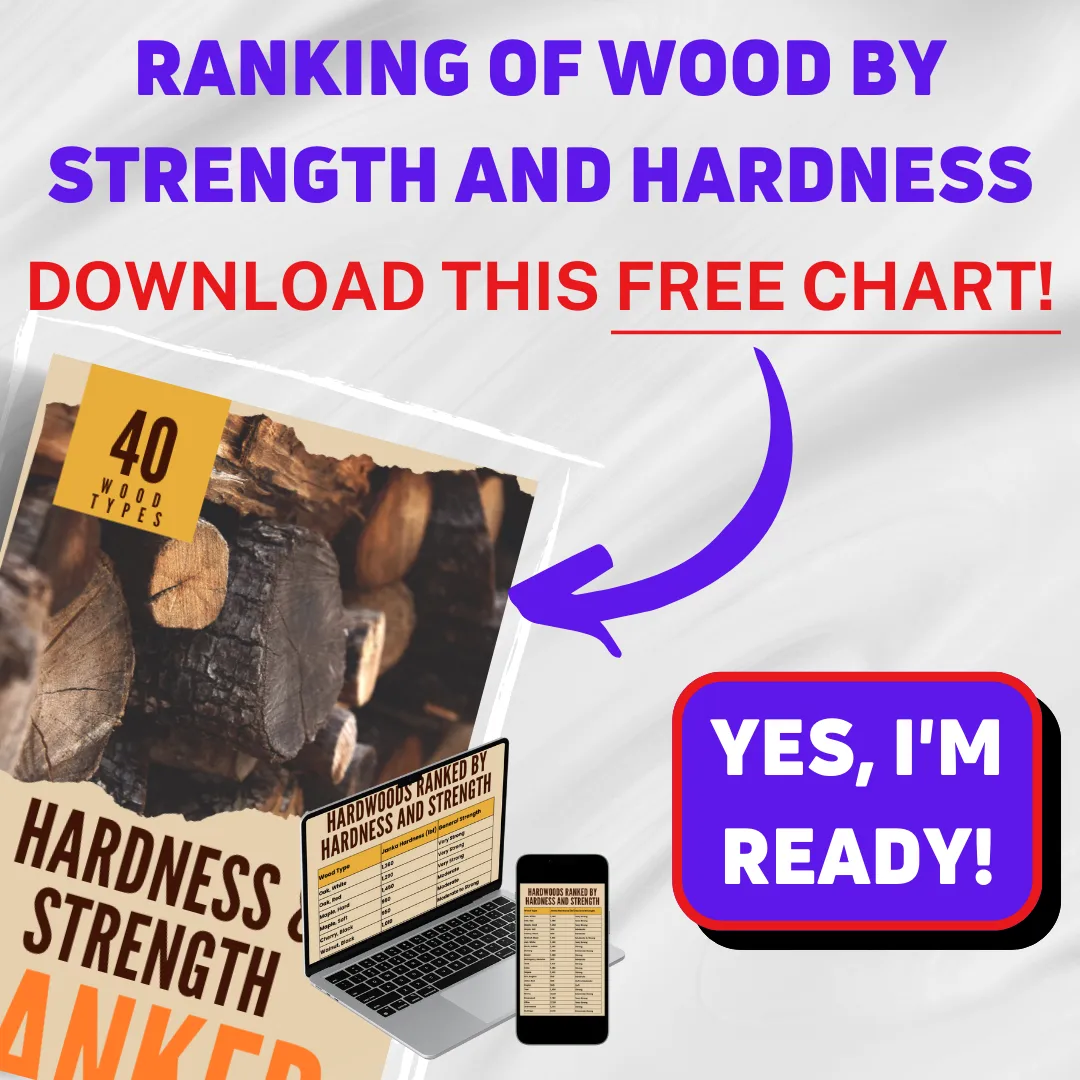
In this article, I’ll explore Is Cypress a hardwood and how hard is Cypress by taking its characteristic qualities with pros and cons.
Furthermore, I’ll answer some frequently asked questions as well.
Let’s get going.
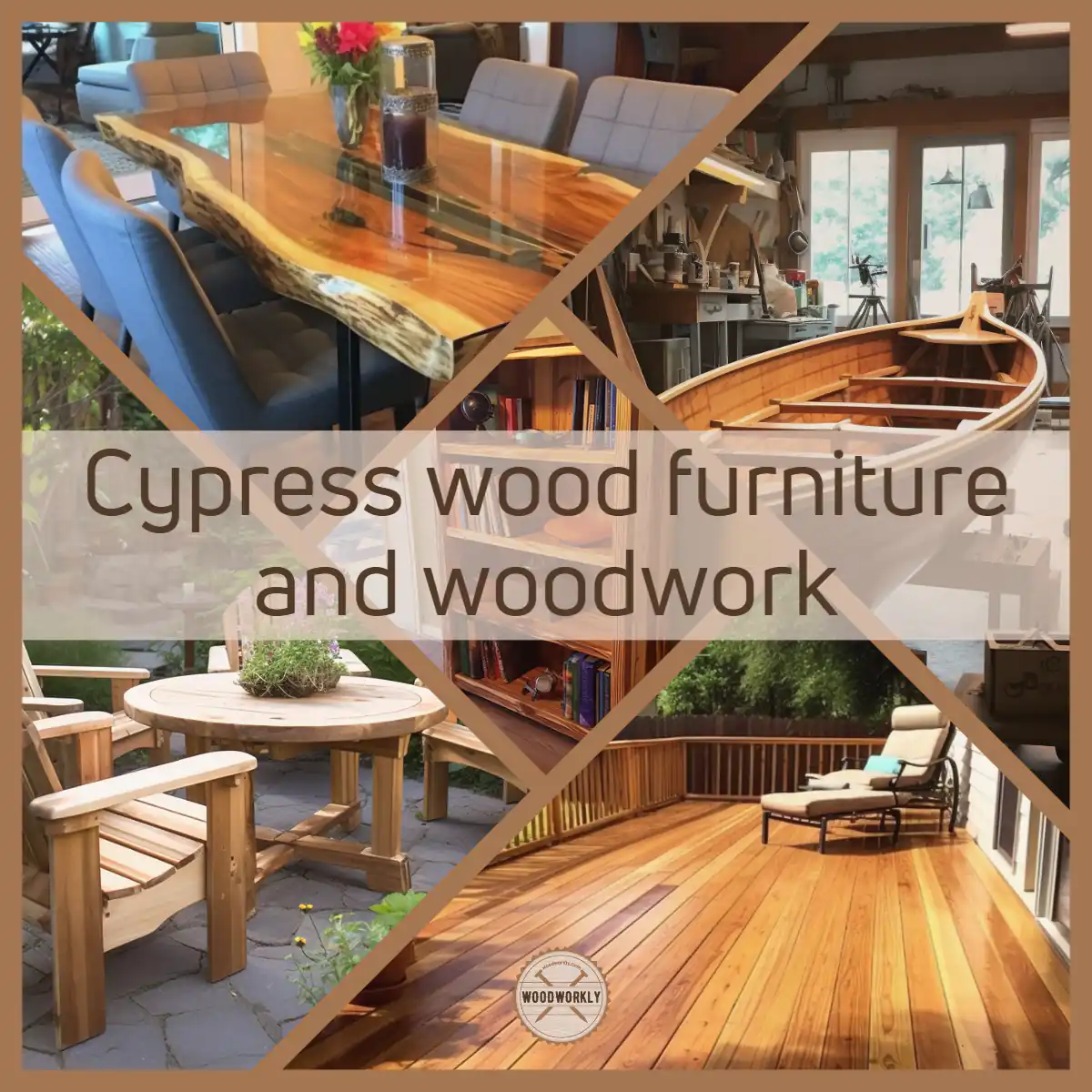
First of all, let’s have a quick look at what is Cypress.
What is Cypress Wood?
Cypress wood is an exceptional type of lumber derived from cypress trees, which belong to the conifer family.
Although it’s classified as a softwood due to its botanical classification and cellular structure, cypress wood has some unique qualities that often align it more closely with hardwoods.
Now, let’s dive deeper into understanding what cypress wood is and what makes it special.
Hardwood and Softwood Characteristics Of Cypress
What sets cypress wood apart is its unique blend of hardwood and softwood qualities.
While its structural properties categorize it as a softwood, it often exhibits attributes more typical of hardwoods.
This unique combination of features stems from how cypress trees are grown, gathered, and processed, often alongside hardwood species.
As a result, cypress wood has developed certain hardwood traits that make it an excellent choice for both interior and exterior woodworking applications.
Don’t worry folks! we’ll discuss the characteristics of cypress more in an upcoming section.
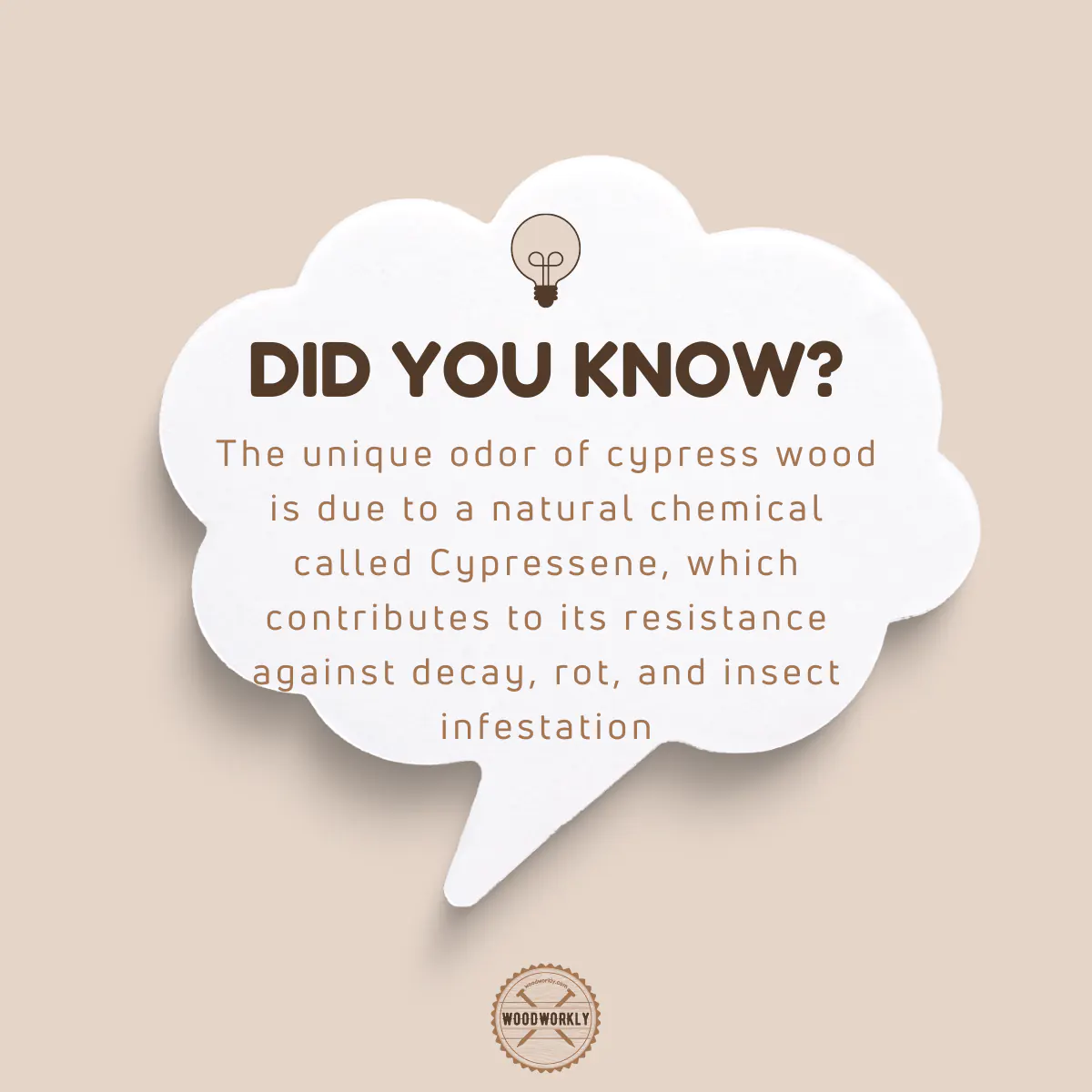
Strength and Lightness
One of the hallmarks of cypress wood is its strength, coupled with its lightness.
Cypress wood is strong yet lightweight, a rare combination that adds to its popularity.
It’s excellent cutting, gluing, nailing, bolting, and finishing properties make it a versatile choice for a range of applications, from construction to furniture making.
Distinct Appearance and Odor
Cypress wood is easy to recognize due to its light yellowish-brown tint with white sapwood, straight grain, and medium texture.
Furthermore, it gives off a distinctive odor because of a chemical it produces called Cypressene.
This chemical not only contributes to the wood’s unique scent but also aids in the wood’s defense against environmental factors, making it resistant to decay, rot, and insects.
A Versatile Wood for Various Applications
Despite being softer than the majority of woods, cypress wood has earned a reputation as one of the world’s most adaptable materials.
Its impressive workability, thanks to its combination of hardwood and softwood qualities, makes it a favorite among woodworkers.
Whether you’re crafting a boat or building a piece of furniture, cypress wood’s versatility shines through.
Diverse Varieties and Commercial Names
Depending on where the cypress trees originate, you might encounter several commercial names.
For example, you may find ‘yellow cypress,’ which signifies the inland variety, and ‘red cypress,’ known for its golden color and maritime origin.
There are even types of cypress from the marshy environments and river banks of the southern United States, often labeled as ‘tidewater,’ ‘gulf,’ or ‘swamp.’
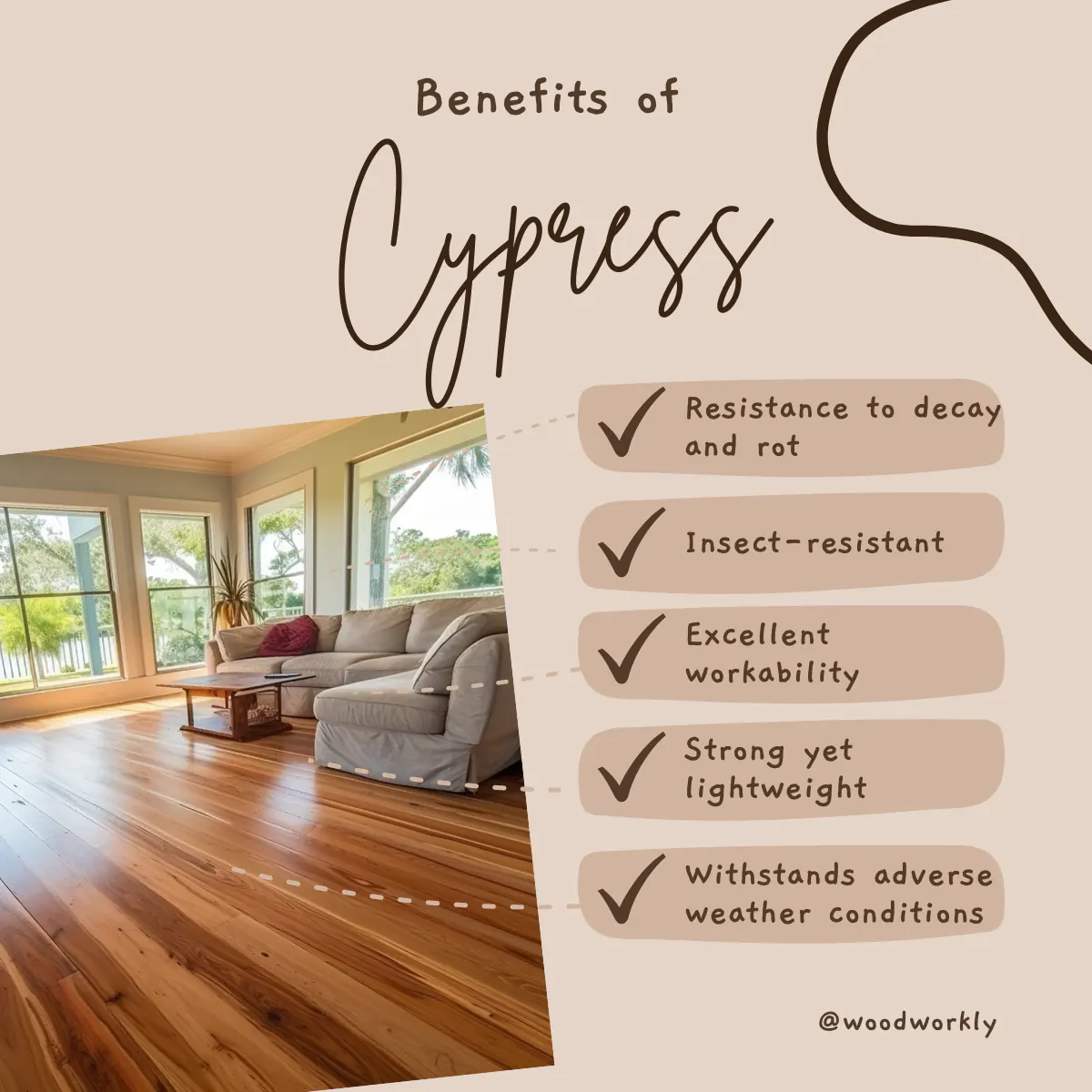
How Hard Is Cypress?
Cypress is softer than most hardwoods and softwoods.
According to the Janka hardness ratings, Cypress has a hardness rating of 510 lbf (2,269 N) which is significantly less than most of the woods that we use for construction projects.
But Cypress is grown along with hardwoods, and it is grouped, and manufactured with hardwood species, therefore even though it is considered a softwood it has some exceptional hardwood qualities that are useful in any woodworking project.
Not like other softwoods, Cypress is graded by the rules of the National Hardwood Lumber Association as well.
Even though Cypress trees are conifer-like all other softwoods, there’re some exceptions. Cypress conifer trees are deciduous, and they shed leaves in the fall like hardwood trees.
As you can see Cypress is a softwood only by its structural properties. Other than that, it grows like a hardwood by shedding leaves in fall, growing along with hardwood trees, grouping, and manufacturing with hardwoods.
As a result of that, Cypress softwood is equipped with some great hardwood features as well.
It has been used for both interior and exterior woodworking applications, not like most other softwoods.
Because of having less hardness and density, Cypress is easy to work with.
It is so rare to see wood having properties of both hardwoods and softwoods while having good workability.
Therefore, Cypress is like a universal wood for woodworkers which teaches lots of stuff about woodworking.
Cypress is harder than pine but soft enough to machine easily.
Janka hardness rating is a standard method of measuring the resistance of wood against wear and dent. If a particular wood has high wear and dent resistance it is considered a wood with a high hardness value.
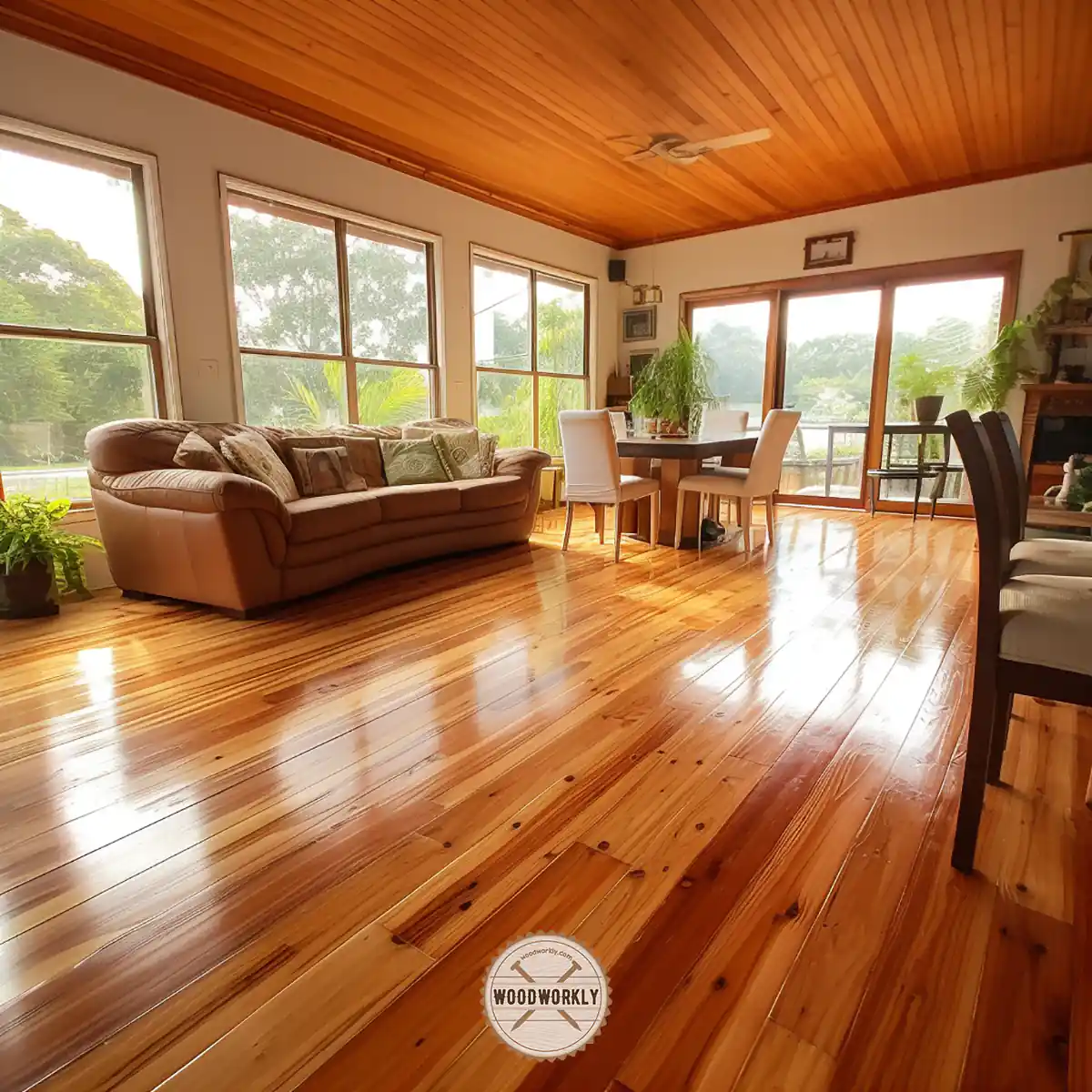
Cypress Wood Hardness Comparision
According to the Janka hardness ratings, Cypress has a hardness rating of 510 lbf (2,269 N).
Here’re the hardness ratings of popular wood types to get an idea about how hard is Cypress compared to them.
| Wood species | Hardness value |
| Brazilian Walnut | 3,684 lbf (16,390 N) |
| Red Mahogany, Turpentine | 2,697 lbf (12,000 N) |
| Brazilian Cherry, Jatoba | 2,350 lbf (10,500 N) |
| Golden Teak | 2,330 lbf (10,400 N) |
| Hickory, Pecan, Satinwood | 1,820 lbf (8,100 N) |
| Hard Maple, Sugar Maple | 1,450 lbf (6,400 N) |
| White Oak | 1,360 lbf (6,000 N) |
| Ash (White) | 1,320 lbf (5,900 N) |
| American Beech | 1,300 lbf (5,800 N) |
| Red Oak (Northern) | 1,290 lbf (5,700 N) |
| Yellow Birch / Baltic birch | 1,260 lbf (5,600 N) |
| Teak | 1,155 lbf (5,140 N) |
| Black Walnut, North American Walnut | 1,010 lbf (4,500 N) |
| Cherry | 995 lbf (4,430 N) |
| Black Cherry, Imbuia | 950 lbf (4,200 N) |
| Red Maple | 950 lbf (4,200 N) |
| Douglas Fir | 710 lbf (3,158 N) |
| Silver Maple | 700 lbf (3,100 N) |
| Hemlock | 540 lbf (2,402 N) |
| Black Spruce | 520 lbf (2,313 N) |
| Cypress | 510 lbf (2,269 N) |
| Redwood | 420 lbf (1,868 N) |
| Engelmann Spruce | 390 lbf (1,735 N) |
| Sugar Pine | 380 lbf (1,690 N) |
| White Pine | 380 lbf (1,690 N) |
As you can see Cypress is softer than most the hardwoods and softwoods.
It has less density as well. But it has become one of the most versatile woods in the world because of some unique qualities.
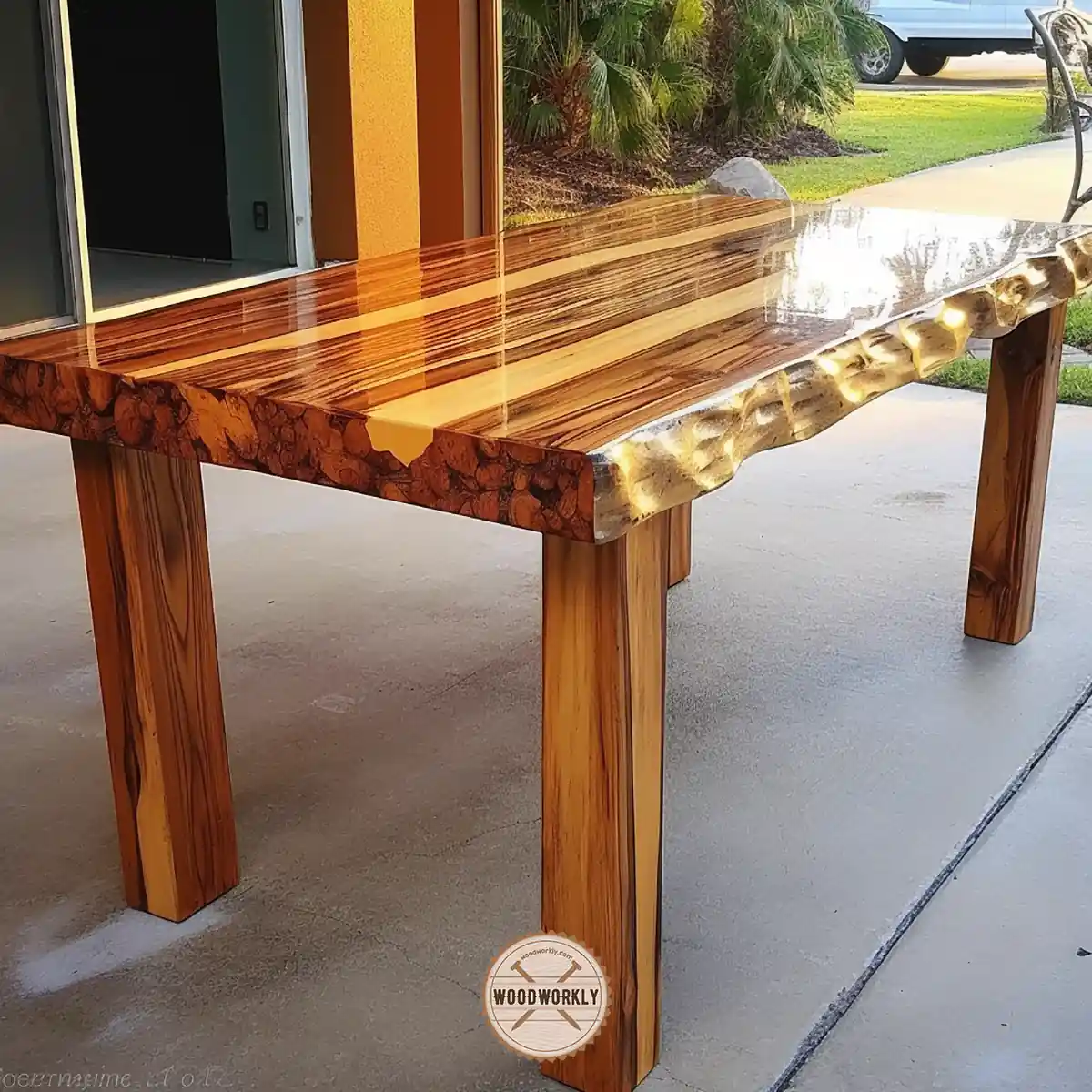
So, let’s find out the characteristic features of Cypress to become one of the most superior wood types on the planet even with less hardness value.
Characteristics of Cypress Wood
Cypress is a light yellowish-brown wood with white sapwood.
It can be found in wet swampy areas. Cypress is a softwood but grown alongside hardwoods and grouped and manufactured with hardwoods.
It has a straight grain with a medium texture. When we look at the end grain, resin canals cannot be seen, and the diameter of the tracheid is distributed largely.
Not like many other softwoods, Cypress has good rot resistance and decay resistance.
This is because of hardwood properties.
When it comes to workability, Cypress is easy to work with. Softwoods are generally easy to cut, nail, and screw.
But make sure to use sharp cutters and light pass with Cypress. Nailing, finishing, and paint-holding properties are great.
Cypress has a distinct characteristic odor. Therefore, make sure to open windows in the room when you’re working with Cypress to avoid breathing problems.
Cypress generates a chemical itself called Cypressene.
It helps the wood to protect against environmental elements and makes the wood decay, rot, and insect resistant.
This chemical is only contained in Cypress and therefore it has added advantages compared to other wood types.
The above resistances of Cypress are really important, especially in outdoor woodworking applications.
Because of the above unique qualities, even though Cypress is considered a softwood it has some exceptional qualities even hardwood cannot achieve.
Here’re some top characteristic qualities of Cypress.
- Softwood
- Decay resistant
- Rot-resistant
- Insect-resistant
- High workability
- Distinct characteristic odor
Here’re the main characteristic features of Cypress.
| Color | Light to yellowish-brown |
| Density | 0.46 kg/m3 |
| Wood Type | North American Softwood |
| Hardness | 510 lbf (2,269 N) |
| Stiffness | 1.44 Mpsi |
| Applications | Interior and exterior constructions, boatbuilding, docks |
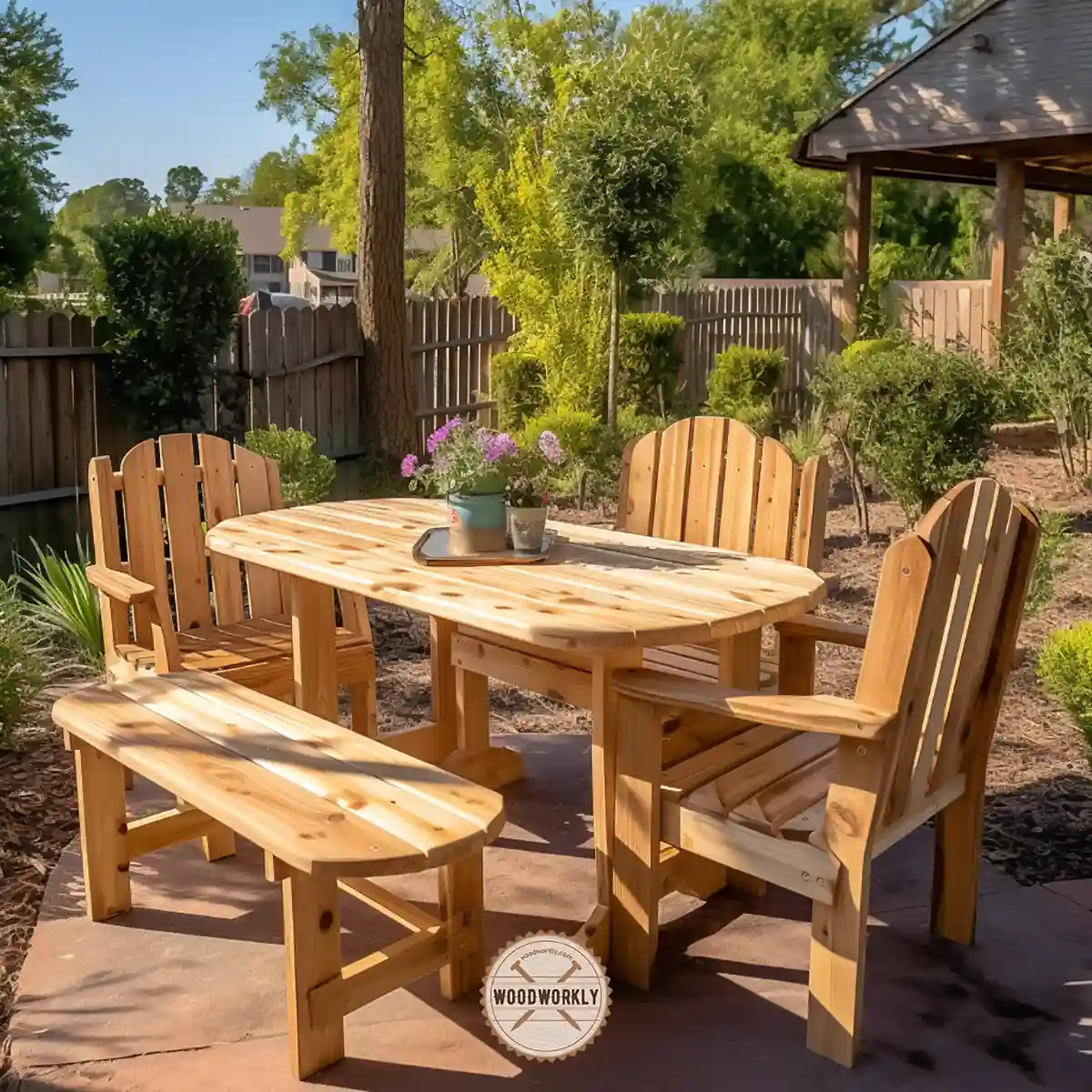
So, let’s find out the advantages and disadvantages of Cypress according to the hardness factor.
Pros and Cons of Cypress
| Pros | Cons |
| Softwood | Distinct Odor |
| High workability | Poor density |
| Rot-resistant | Expensive |
| Decay resistant | |
| Insect-resistant | |
| High durability |
As you can see disadvantages of Cypress are almost negligible compared to its advantages.
Cypress is a versatile softwood with great woodworking qualities. Personally, one of my favorite woods.
What Is Cypress Used For?
Cypress can be used for both indoor and outdoor woodworking projects due to its exceptional hybrid qualities of hardwoods and softwoods.
Here’re some uses of cypress wood,
- Boats
- Flooring
- Posts
- Paneling
- Plywood
- Pilings
- Roof shingles
- Furniture
- Boxes
- Crates
- Water tanks
- Other construction projects
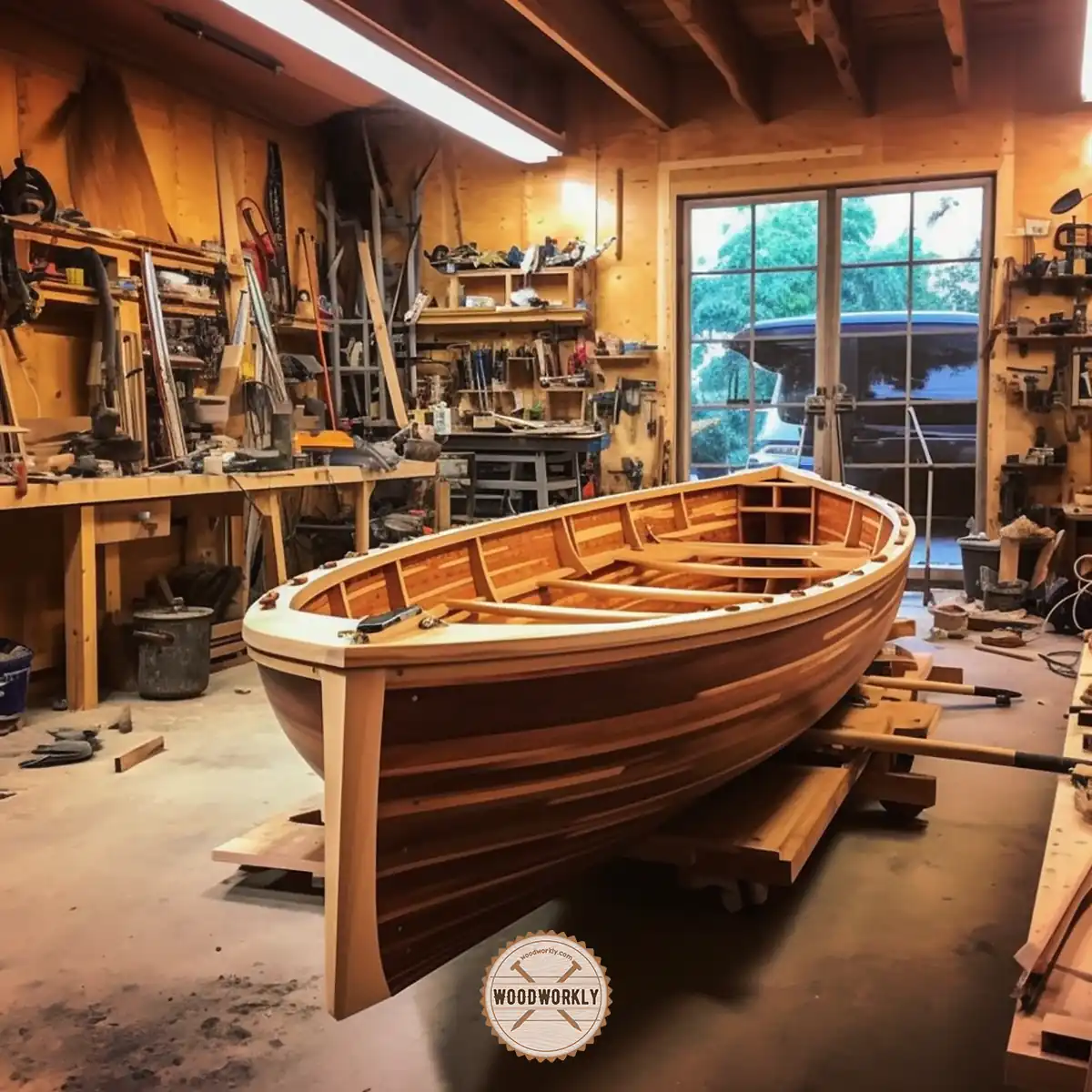
How Strong Is Cypress?
Cypress is a moderately strong wood. even though it is considered softwood, Cypress has high durability.
The compressive strength and bending strength of Cypress are significantly higher than most hardwoods and softwoods.
The compressive strength and bending strength of Cypress are as follows,
- The compressive strength of Cypress is 6,360 psi
- The bending strength of Cypress is 10,600 psi
As you can see bending strength of Cypress is significantly high and therefore, it has great flexibility and is useful in flexural applications like boatbuilding.
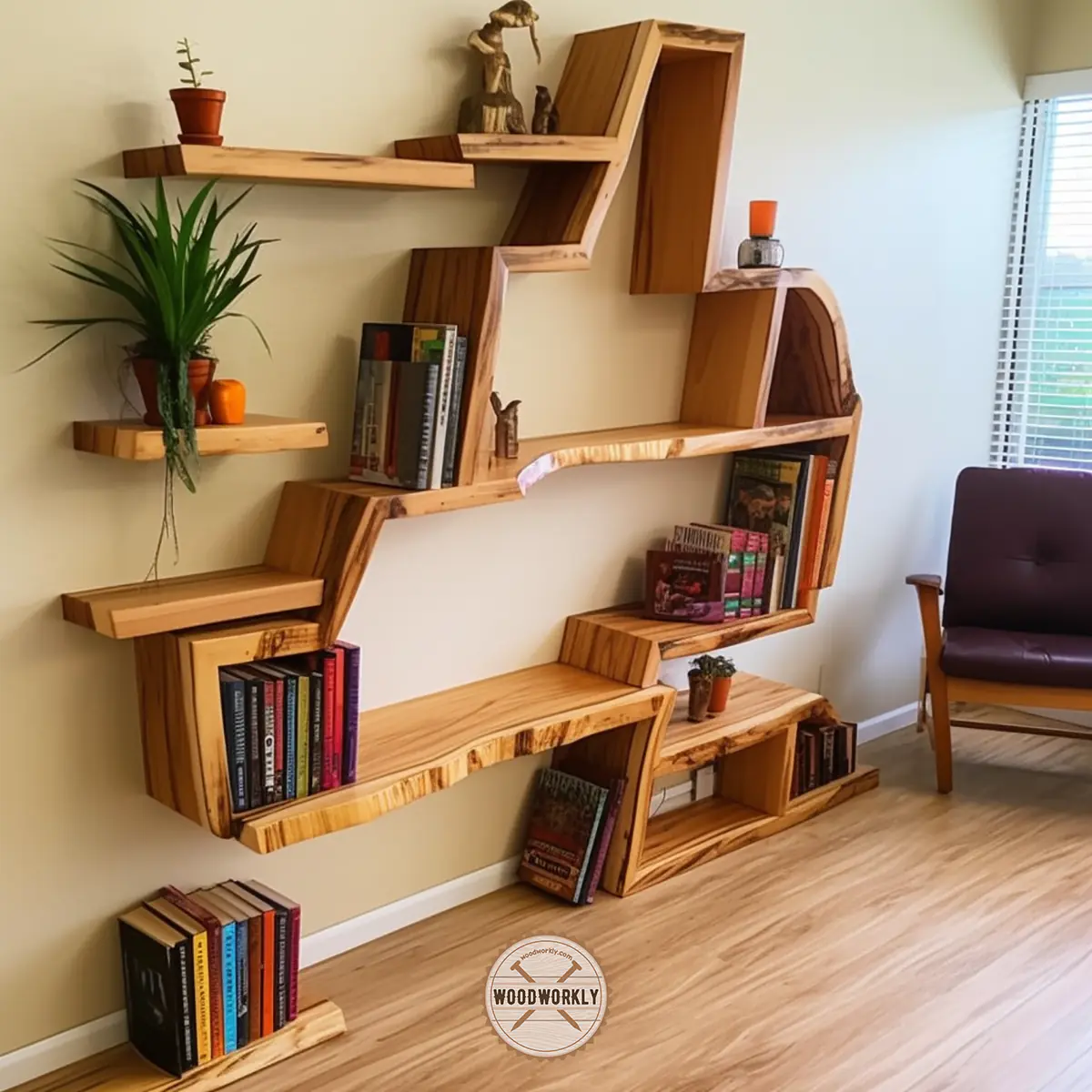
Is Cypress Good for Flooring?
Cypress wood is a top choice for flooring for many homeowners and builders since it has excellent strength, durability, and a pleasing look.
Let’s explore whether cypress wood is a good choice for flooring.
Strength and Durability
First and foremost, flooring must be strong and capable of enduring regular use and occasional mishaps.
Here, cypress wood shines. It’s remarkably durable and resistant to wear and tear, making it a superb choice for flooring.
Despite being a softwood, cypress possesses considerable strength.
Its impressive compressive and bending strengths exceed many other wood types, so it’s more than capable of handling the demands of a busy household or commercial space.
Aesthetically Pleasing
The aesthetic appeal of cypress wood is undeniable.
Its light yellowish-brown color with white sapwood and straight grain provides an appealing, warm, and rustic look to any space.
Its medium texture further enhances the overall appearance, adding to the depth and character of the floors.
Resistance to Rot and Decay
Floors can be subjected to various challenges, including spills, moisture, and changing temperatures.
Cypress wood is highly resistant to rot and decay, thanks to the naturally occurring chemical Cypressene.
This makes it an excellent choice for areas exposed to moisture or those with high foot traffic.
Workability
Cypress wood is known for its excellent workability. It’s relatively easy to cut, glue, nail, and finish, which means it can be installed and maintained without too much hassle.
This ease of use is a boon for both professional installers and DIY enthusiasts.
Environmentally Friendly
Opting for cypress wood flooring is also an environmentally-conscious choice.
Cypress trees grow relatively fast and are widely available, making cypress a sustainable option compared to some slow-growing hardwoods.
Potential Drawbacks
While cypress offers many advantages, it’s also important to consider some potential drawbacks.
The most significant of these is likely its price. Due to its high demand and somewhat limited supply, cypress wood can be more expensive than some other flooring options.
Moreover, some people might find its distinctive odor a bit strong, especially initially.
Cypress wood can be an excellent choice for flooring, owing to its strength, durability, aesthetic appeal, and resistance to rot.
However, it’s important to weigh these benefits against the cost and your personal preferences.
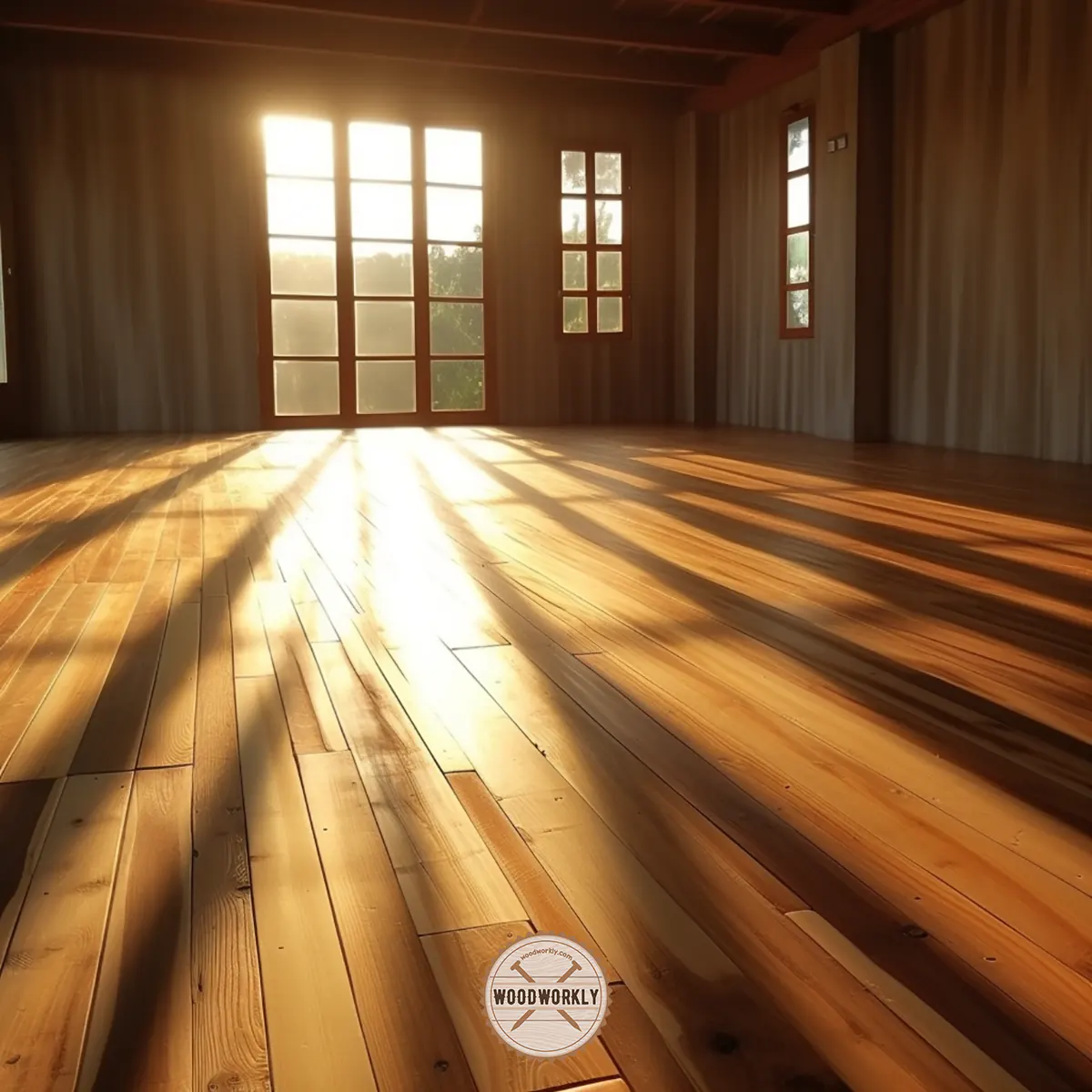
Let’s compare the hardness of Cypress to some other popular types of wood.
Is Cypress Harder Than Pine?
Cypress is harder than Sugar Pine and White Pine. But Yellow Pine is harder than Cypress.
Both pine species and Cypress belong to the softwood family.
But when it comes to the woodworking world, Cypress is a more versatile wood than pine wood because of its hardwood qualities.
According to the Janka hardness ratings, the hardness of Cypress and Pine is as follows,
| Wood Type | Hardness |
| Cypress | 510 lbf |
| White Pine | 380 lbf |
| Sugar Pine | 380 lbf |
| Yellow Pine | 870 lbf |
Is Cypress Harder Than Oak?
Oak is harder than Cypress.
Both red Oak and White Oak are harder than Cypress because Oak is 100% belongs to the hardwood family and hardwoods are mostly harder and denser than softwoods.
But there’re some occasions Cypress is more useful than Oak because of its hybrid qualities of softwoods and hardwoods.
It is a more lightweight and durable option than Oakwood.
According to the Janka hardness ratings, the hardness of Cypress and Oak is as follows,
| Wood Type | Hardness |
| Cypress | 510 lbf |
| Red Oak | 1,290 lbf |
| White Oak | 1,360 lbf |
As you can see, Oak is more than twice as much harder and denser than Cypress.
Is Cypress Harder Than Cedar?
Cypress is harder than Cedar.
Even though Cypress and Cedar belong to the same softwood family, both western Red Cedar and White Cedar are softer and less dense than Cypress.
According to the Janka hardness ratings, the hardness of Cypress and Cedar is as follows,
| Wood Type | Hardness |
| Cypress | 510 lbf |
| Western Red Cedar | 350 lbf |
| White Cedar | 320 lbf |
Therefore, Cedarwood can be easily replaced with Cypress with better durability and weather resistance.
That’s it, folks! now you know everything you need to know about, Is cypress a hardwood with its characteristic features.
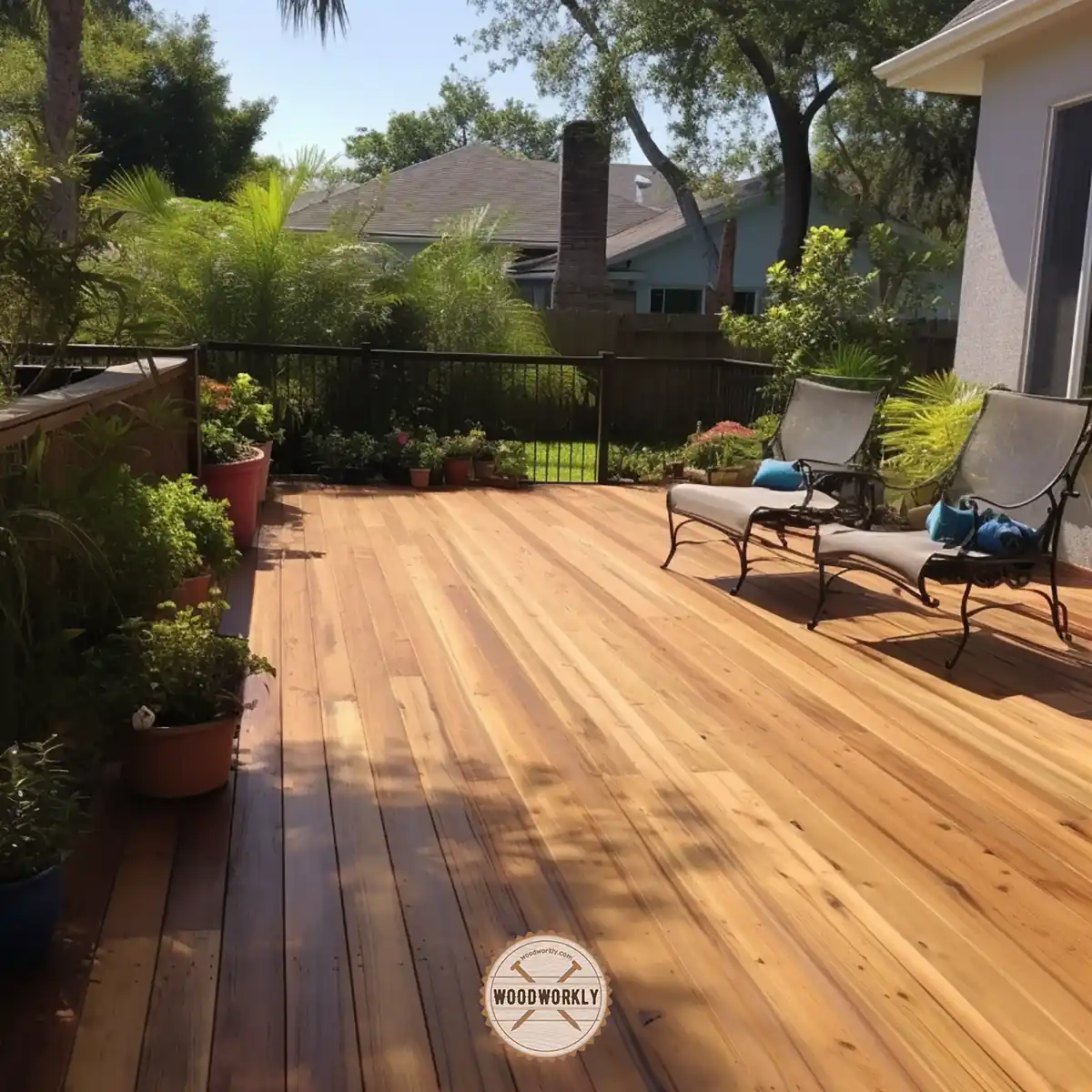
Let’s answer some frequently asked questions as well.
FAQs
Is cypress considered a hardwood or a softwood?
While cypress is technically classified as a softwood due to its coniferous origins and certain structural qualities, it possesses many characteristics that are similar to hardwoods, such as its resilience and durability.
What are some unique characteristics of cypress wood?
Cypress wood is known for its distinctive light yellowish-brown color, resistance to decay, rot, and insects, and excellent workability, making it a versatile choice for a variety of woodworking projects.
Why is cypress wood so valuable?
Cypress wood is highly valued due to its unique attributes, including an oily resin that protects the wood from water and deterioration, its insect repelling properties, and its impressive strength and durability.
Can cypress wood be used for outdoor projects?
Yes, the inherent oils in cypress wood make it highly resistant to decay and water damage, making it a superb choice for outdoor woodworking applications like boat construction, decking, and bridges.
Is cypress wood a good choice for flooring?
Yes, Cypress wood’s strength, resistance to wear and tear, and aesthetic appeal make it a popular choice for flooring, despite being a bit pricier than some other wood types.
Did I cover all you wanted to know about: Is Cypress a Hardwood?
In this article I’ve deeply discussed, is Cypress a hardwood and how hard Cypress is by taking its characteristic qualities, pros, and cons in terms of hardness.
Cypress is not a hardwood. Cypress is a softwood. Cypress has a hardness rating of 510 lbf (2,269 N) which is higher than most softwoods. Cypress belongs to the softwood family, but it has some hardwood properties as well. Even though Cypress trees are conifers, they’re deciduous and shed leaves in fall like hardwoods.
Cypress is a versatile softwood that contains lots of hardwood properties. Generally, softwoods don’t suggest for outdoor applications.
But because of having a unique chemical that protects Cypress from insect, rot, and decay, Cypress is undoubtedly one of the best woods for exterior woodworking applications like exterior columns.
Furthermore, we have discussed how strong Cypress is and answered some frequently asked questions as well.
Hope you have gained pretty good knowledge about the hardness of Cypress and why it is so important in the woodworking world.
So, let’s begin your next woodworking project with all the information you gathered about Cypress wood. Have fun in woodworking!